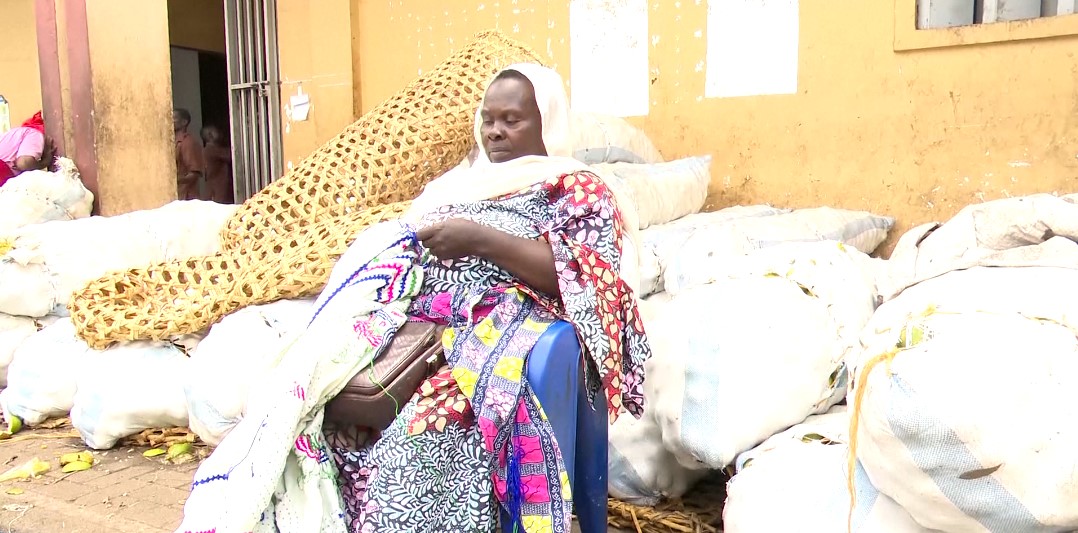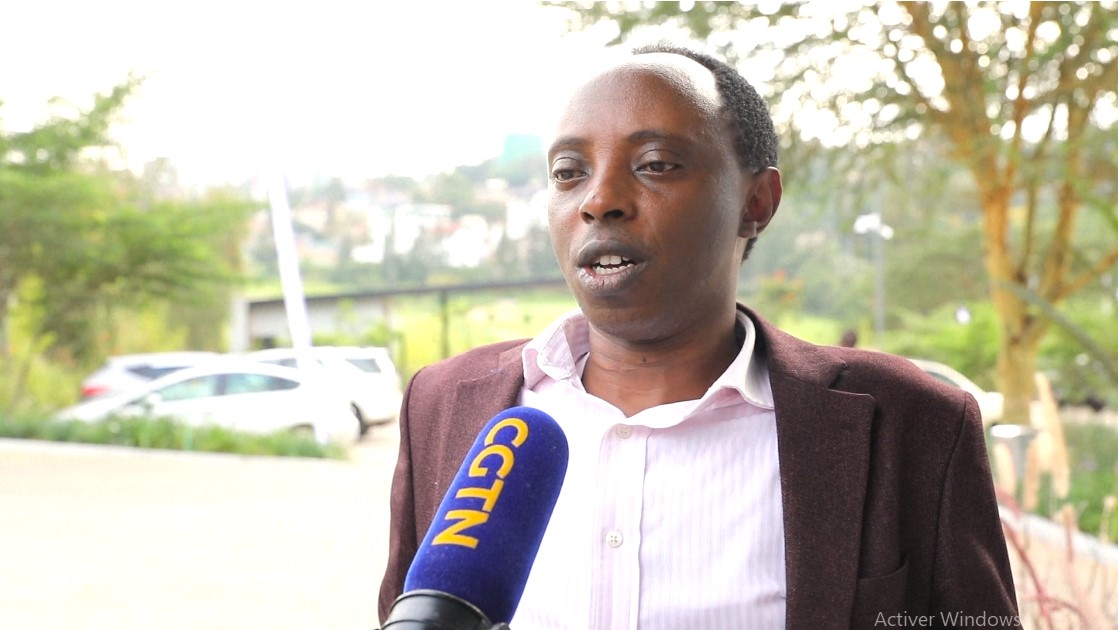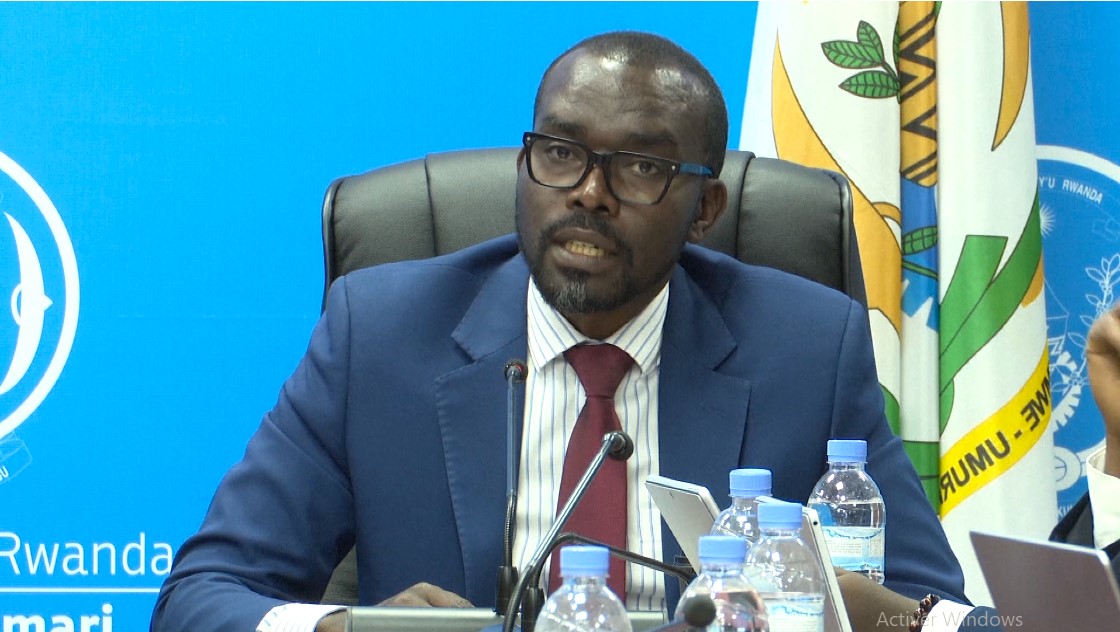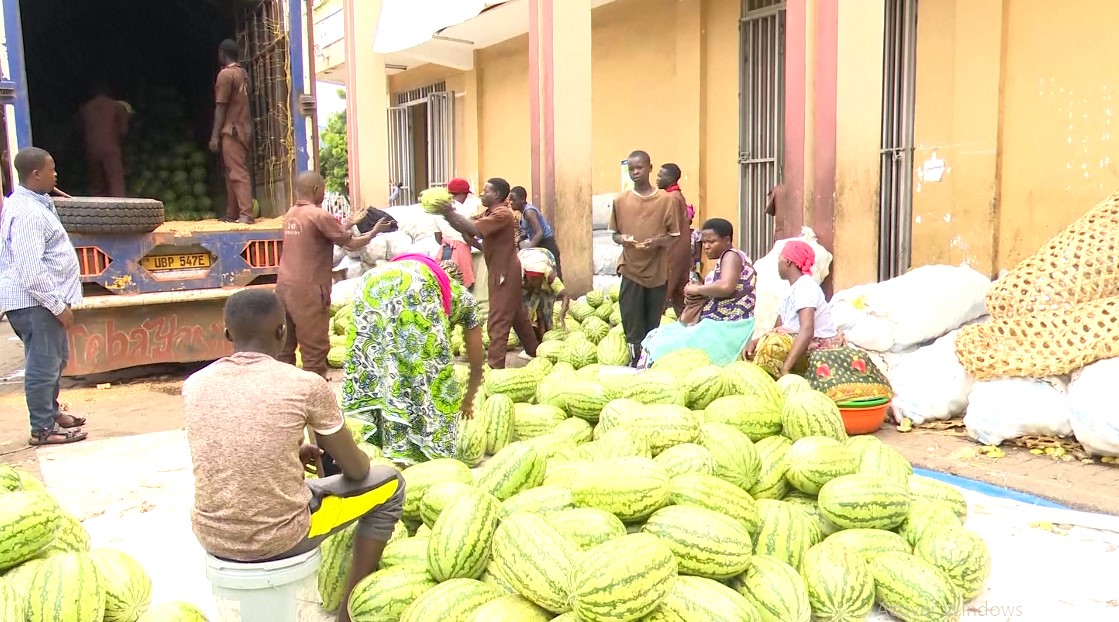KIGALI, February 15th (AMSP/CGTN) – – The ongoing conflict in the Eastern Democratic Republic of Congo has severely affected trade between Rwanda and the DRC. As Rwanda’s key re-export destination, the DRC—particularly its eastern region—has faced persistent instability, disrupting cross-border trade. Experts suggest that joint investment projects could help stabilize relations, as shared economic interests may offer a long-term solution to conflicts between the two countries.
Sarah Mukamusoni has been a cross-border trader for 15 years… She is a member of a 16-woman cooperative that supplies fresh food to the city of Goma, in Democratic Republic of Congo. Fruits, vegetables and foodstuff are the most common goods that Rwanda exports to DRC, between the border towns of Rubavu and Goma. Sarah recalls that when conflict escalated in Eastern DRC, they struggled to sell more than 10 bags of food.

“Everything we have here goes to Congo, but the conflict has severely impacted our sales. Previously, we could sell an entire truck of fruits and vegetables daily, but during the conflict, sales dropped to a maximum of just 10 bags of food,” Mukamusoni told CGTN’s Correspondent Athan Tashobya.
The Rwanda-DR Congo border is one of the busiest in Africa, served by two crossings: La Corniche and Petite Barrière. Petite Barrière alone handles over 50,000 crossings daily, making it the busiest pedestrian crossing in the Great Lakes region. In 2018, these borders recorded the highest traffic in Africa, with over 90,000 daily crossings. DRC is a key re-export destination, accounting for nearly 96% of Rwanda’s total re-exports. However, trade has declined due to escalating conflict, early border closures, and other non-tariff barriers. Experts say the situation is a loss to all parts of the border.
“Both sides are affected, because in a trade scenario, being the recipient or the sender, you still lose. With the money, you can’t eat it, but also without the commodity, with the commodity, you need money. So it’s both. It’s a lose-lose scenario. That’s why, actually, when I saw yesterday or the other day, when the M23 reopened the border, it’s a sign that, obviously, cities like Goma need commodities from Rwanda. And I’m sure on the other side, they also need. But also Rwanda, on its side, needs foreign currency,” said Economist Teddy Kaberuka.

DRC accuses Rwanda of supporting M23 rebels, while Rwanda claims DRC supports the FDLR militia, which opposes Kigali. Both countries deny the allegations. Experts urge Great Lakes countries to invest in joint infrastructure to strengthen trade and reduce conflicts.
“I always advocate for a hybrid solution where the governments can invest together. Let’s build factories. Let’s invest together. Because when we have a common investment, (we can’t risk spoiling our investment. But when we don’t have anything, so we can afford to close borders, we can afford to fight because there’s no loss in terms of economic business,” Kaberuka said.
DRC is the only country in the region where Rwanda exports more than it imports. However, the conflict has greatly affected trade between the two nations.
M23 rebels, now controlling Goma, have extended border operations. Petite Barrière now closes at 6 PM, while La Corniche remains open until 10 PM. Rwanda’s Trade Minister, Prudence Sebahizi, noted that despite security concerns, traders can now send full truckloads of goods across the border.

“The number of trucks that were crossing daily had been stopped temporarily but today they have resumed daily crossing. DRC has been a major market for Rwanda. It’s one of the countries where we have a trade surplus which means that we export to DRC more than we import from the DRC,” Prudence Sebahizi, Rwandan Minister of Trade.
Recent data shows a sharp drop in Rwanda’s trade deficit for December 2024, marking a key economic milestone. The National Institute of Statistics of Rwanda (NISR) reports a deficit of $134.69 million, down 45% from November 2024 and 63.5% from December 2023.
amsp/cgtn-abp
CGTN

